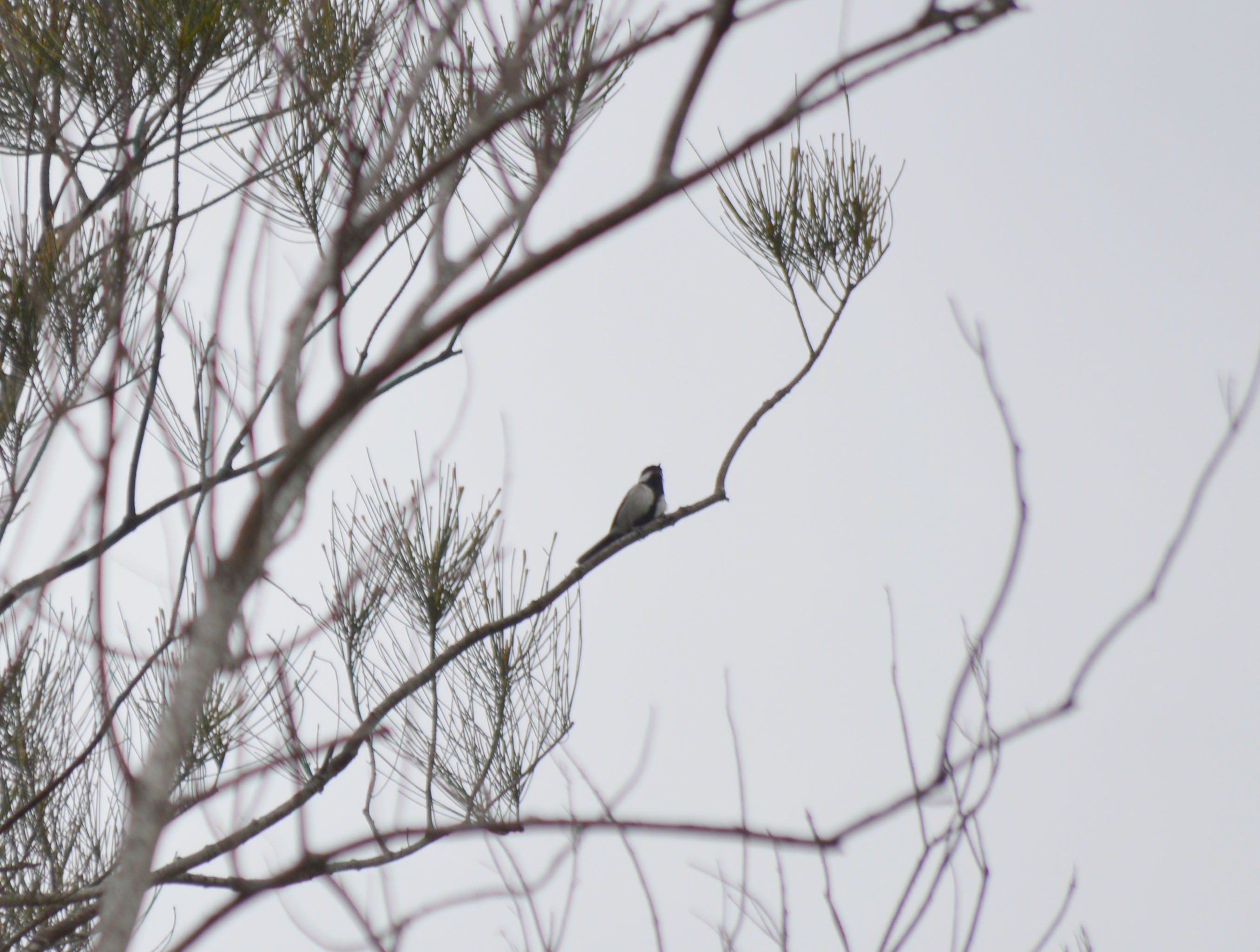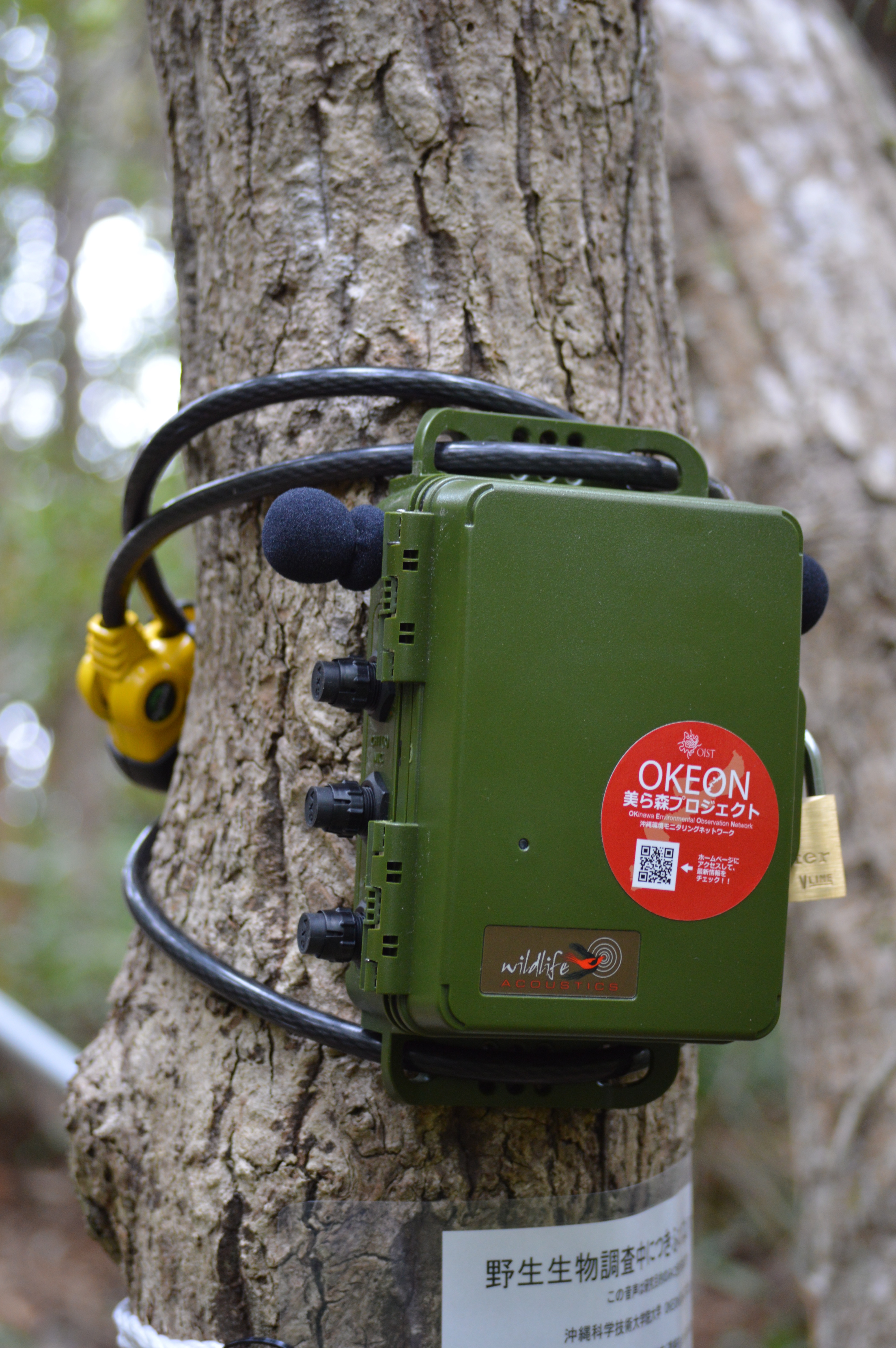Listening to the sounds of nature: switching on OIST’s acoustic monitoring network
By okeon_admin on Friday,February 17th, 2017 in Audio, Biodiversity, Data, Research, No Comments
February 14th is Valentine’s Day, and for birds living in Okinawa it’s the perfect time to start thinking about building a nest. In warm years like this one, the Tree Sparrow (スズメ) begins its breeding season around this time, followed by the Pacific Swallow (リュウキュウツバメ), the Japanese White-eye (メジロ), and the Japanese Tit (シジュウカラ). If you look closely at the eaves of houses around the island, you may notice the swallows beginning their nesting behavior.

Japanese Tit singing near Takeyanbaru; Photo Credit: Sam Ross
Researchers from arilab are monitoring the onset of the breeding season not only for birds, but also for frogs, crickets, and other organisms that communicate with sound. This is accomplished using a new acoustic monitoring network. While testing of this network has been ongoing for the last year, its installation and activation were completed last week, just in time for Valentine’s Day.

Acoustic Recorder; Photo Credit: Nick Friedman
OIST’s acoustic monitoring network produces more audio than scientists can analyze by ear: assuming you listened to the recordings every minute of every day, you would be twenty four years older by the time you finished a single year’s data. To fix this problem, OIST scientists are training computer models to recognize patterns of activity and to detect individual species of birds, frogs, and insects.

Shinji Iriyama, Ayumi Inoguchi, Sam Ross; Photo Credit: Nick Friedman
(Written by Nicholas Friedman)





